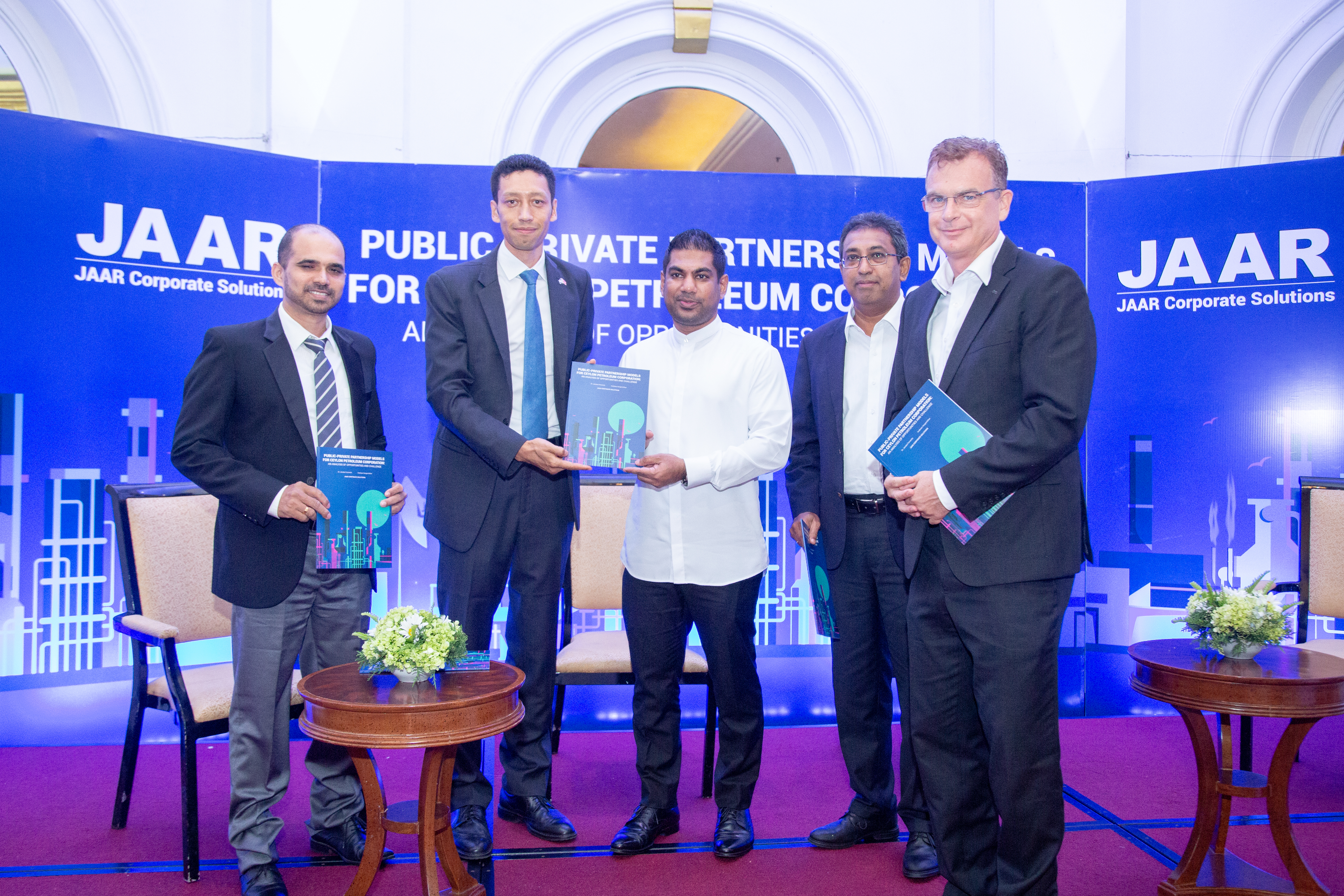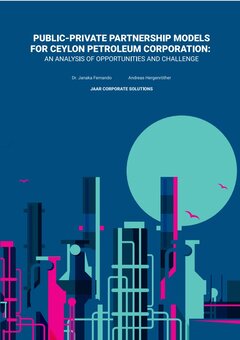Press Release
Report launch on Public Private Partnership Model for Ceylon Petroleum Corporation (CPC)

Press Release
Friedrich Naumann Foundation for freedom Sri Lanka (FNF) and JAAR Corporate Solutions launched a report on ‘Public Private Partnership Model for CPC: An analysis of Opportunities and Challenges at a special event held in Colombo.
This report stresses the importance of public-private partnership (PPP) in the energy sector in Sri Lanka. The report highlights the main factors that have contributed to the losses at CPC, proposals for suitable PPP models for potential investors and policy recommendations for the Sri Lankan Government
The Ceylon Petroleum Corporation (CPC) has become a heavy burden for the government and the Sri Lankan economy due to its poor performance. The total debt of the CPC has been increasing at an alarming rate over the last few years. In contrast, Lanka Indian Oil Company (LIOC), which is the only competitor in the retail fuel market in Sri Lanka, has continuously made profit since its incorporation in Sri Lanka, except in some years. This raises an important question as to why the CPC is not functioning effectively and not making profit while LIOC is making profits. The answer is directly related to multifaceted inefficiencies in the CPC. Many countries around the world are increasingly relying on the private sector to invest in infrastructure services in energy, communication, power, transport, water sectors and other development projects that were initially delivered or managed by the public sector.
Speaking at the event the co-author of the report Dr. Janaka Fernando said “the Sri Lanka economy is facing its worst economic crisis in its post independent era. In this juncture, PPP is a tool that can help the government of Sri Lanka to manage development projects and other services as off-budget expenses while increasing the efficiency in project delivery and operations. However, misconception and misinterpretation of PPP models need to be addressed.”
This report provides some key policy recommendations for the Government which includes Having open discussions with all stakeholders such as government, trade unions and potential investors; sector-related PPP-models and privatization; Evaluate and Reduce Subsidies; Minimize Currency Risks, Increase Liquidity; Introduce a transparent pricing mechanism that covers all costs; Breaking the monopoly of aviation fuel; and Allow for free and fair competition among fuel suppliers while enforcing a transparent Anti- trust legislation.
Minister of Power and Energy Hon. Kanchana Wijesekara, Hon. Dr. Harsha de Silva also presented and had a separate panel discussion on the outcomes of the report. Mr. Andreas Hergenröther, the Joint Managing Director and Head of Market Entry and Sustainability of JAAR Corporate Solutions also joined panel discussion which was moderated by Shamindra Kulamannage.
Click link below to access the Online Publication
https://online.fliphtml5.com/xemtf/mhsp/
-

Download the Report on Public Private Partnership Model for Ceylon Petroleum Corporation (CPC):
An analysis of Opportunities and Challenges